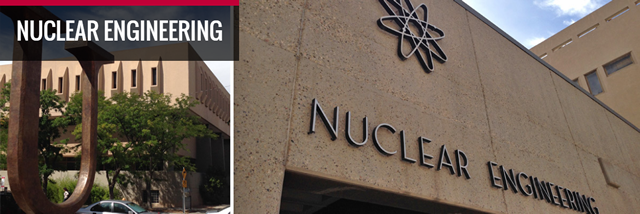
Nuclear Engineering ETDs
Publication Date
Summer 7-14-2022
Abstract
The need to simulate subcritical benchmark parameters quickly and accurately is becoming increasing important. When using Monte Carlo methods this is traditionally done using a fixed-source calculation where a particle and its progeny are tracked until their removal from the system. This method can be slow for near critical systems. The use of a k-eigenvalue solver could reduce the computational footprint and reduce the need to post process data.
This is done for four parameters from the ICSBEP benchmark values: R_1 , R_2 , M_L, and M_eff. These parameters are calculated in two new distinct ways. First, is directly using MCNP KCODE. Second by using a response-based importance map to bias the starting weight of neutrons based on the birth location. The direct method benefits from reduced runtimes but suffers from inaccuracy at higher k-eigenvalues. The map-based method is very accurate and has improved computational efficiency.
Keywords
Subcritical, Benchmark, K-eigenvalue, MCNP
Document Type
Dissertation
Language
English
Degree Name
Nuclear Engineering
Level of Degree
Doctoral
Department Name
Nuclear Engineering
First Committee Member (Chair)
Christopher Perfetti
Second Committee Member
Michael Rising
Third Committee Member
Cassiano Endres De Oliveira
Fourth Committee Member
Brian Kiedrowski
Recommended Citation
Timmons, Daniel H.. "THE EFFECTS OF A POWER ITERATION-BASED K-EIGENVALUE SOLVER FOR VARIOUS SUBCRITICAL PARAMETERS AND CALCULATIONS." (2022). https://digitalrepository.unm.edu/ne_etds/112
